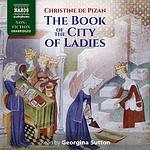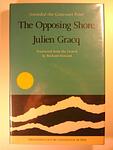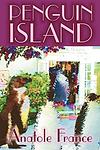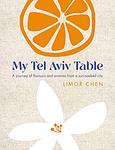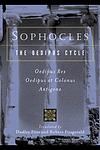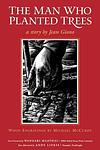The Greatest Italian, French "Allegorical" Books of All Time
Click to learn how this list is calculated.
This list represents a comprehensive and trusted collection of the greatest books. Developed through a specialized algorithm, it brings together 300 'best of' book lists to form a definitive guide to the world's most acclaimed books. For those interested in how these books are chosen, additional details can be found on the rankings page.
Genres
Allegorical books are a genre of literature that use symbolic characters, events, and settings to convey a deeper meaning or message. These stories often have a moral or philosophical lesson that is meant to be interpreted by the reader. Allegories can be found in many different types of literature, including novels, short stories, and poetry. They are a powerful tool for exploring complex ideas and emotions, and can be used to comment on social, political, or religious issues. Overall, allegorical books are a thought-provoking and engaging genre that challenges readers to think critically and reflect on the world around them.
Countries
Date Range
Reading Statistics
Click the button below to see how many of these books you've read!
Download
If you're interested in downloading this list as a CSV file for use in a spreadsheet application, you can easily do so by clicking the button below. Please note that to ensure a manageable file size and faster download, the CSV will include details for only the first 500 books.
Download-
1. The Divine Comedy by Dante Alighieri
In this epic poem, the protagonist embarks on an extraordinary journey through Hell (Inferno), Purgatory (Purgatorio), and Paradise (Paradiso). Guided by the ancient Roman poet Virgil and his beloved Beatrice, he encounters various historical and mythological figures in each realm, witnessing the eternal consequences of earthly sins and virtues. The journey serves as an allegory for the soul's progression towards God, offering profound insights into the nature of good and evil, free will, and divine justice.
-
2. The Stranger by Albert Camus
The narrative follows a man who, after the death of his mother, falls into a routine of indifference and emotional detachment, leading him to commit an act of violence on a sun-drenched beach. His subsequent trial becomes less about the act itself and more about his inability to conform to societal norms and expectations, ultimately exploring themes of existentialism, absurdism, and the human condition.
-
3. The Plague by Albert Camus
The novel is set in the Algerian city of Oran during the 1940s, where a deadly plague sweeps through, causing the city to be quarantined. The story is told through the eyes of a doctor who witnesses the horror and suffering caused by the disease. The narrative explores themes of human resilience, solidarity, and the struggle against the absurdities of life. It also examines how individuals and society respond to death and disease, creating a profound meditation on the nature of existence and human endurance.
-
4. Decameron by Giovanni Boccaccio
"Decameron" is a collection of 100 stories told by a group of seven young women and three young men sheltering in a secluded villa just outside Florence to escape the Black Death, which was afflicting the city. The tales, which range from the erotic to the tragic, the hilarious to the instructional, are embedded in a rich framework narrative that provides a detailed portrait of the society of the Italian Renaissance.
-
5. If on a Winter's Night a Traveller by Italo Calvino
The novel is a postmodernist narrative that follows the adventures of the reader, who is trying to read a book called "If on a Winter's Night a Traveller." However, the reader keeps encountering obstacles that prevent him from finishing the book, including printer's errors, censorship, and interruptions from other characters. The story is interspersed with the beginnings of ten different novels, each interrupted at a moment of suspense. The book is a meditation on reading, writing, and the nature of narrative itself.
-
6. The Tartar Steppe by Dino Buzzati
The novel follows a young officer who spends his entire life waiting for an attack that never comes at a remote desert outpost. The protagonist's life is consumed by the monotonous routine and the fear of the unknown, reflecting on the human condition and the dread of the passage of time. The desert symbolizes the emptiness and futility of life, while the constant anticipation of a foreign invasion that never happens represents the anxiety and fear of death.
-
7. Six Characters in Search of an Author by Luigi Pirandello
In this metatheatrical play, six characters come to life and demand that a theater director tell their tragic story, which was left incomplete by their author. As the director and his actors interact with these characters, the boundaries between fiction and reality blur, leading to a philosophical exploration of the nature of human identity, the reliability of art, and the unreliability of perception. The characters' story, involving a complex web of familial relationships, adultery, and suicide, further complicates the narrative, challenging the audience's understanding of truth and illusion.
-
8. The Fall by Albert Camus
The novel is narrated by a successful Parisian lawyer who has moved to Amsterdam after a crisis of conscience. He confesses his past misdeeds and moral failings to a stranger in a bar, revealing his growing self-loathing and disillusionment with the hypocrisy and shallowness of his former life. His confessions are a reflection on guilt, innocence, and the nature of human existence. The protagonist's fall from grace serves as a critique of modern society's moral failings and the individual's struggle with guilt and redemption.
-
9. The Book of the City of Ladies by Christine De Pizan
"The Book of the City of Ladies" is a classical work in which the author, through allegorical characters, builds an imaginary city for women to illustrate their significant contributions to society. The book is a defense of women, arguing against the popular notion of the time that women were inferior to men. It showcases the author's deep knowledge of the past, referencing numerous notable women from history and mythology, emphasizing their virtues, intelligence, and moral fiber.
-
10. Complete Poems of Giacomo Leopardi by Giacomo Leopardi
This book is a comprehensive collection of the poetic works of a renowned Italian poet. The poems cover a wide range of themes, from love and nature to philosophy and social issues, showcasing the poet's profound understanding of human nature and the world. The collection also includes his celebrated "Canti" and other lesser-known works, all presented in their original Italian language, making it a valuable resource for those interested in Italian literature and culture.
-
11. The Opposing Shore by Julien Gracq
The book is a captivating tale of a young military officer who is posted to a remote coastal fortress in an imaginary Mediterranean country. As he awaits a long-anticipated enemy invasion, he finds himself drawn into the local customs and intrigued by the enigmatic presence of the enemy on the opposing shore. The narrative delves into themes of waiting, the passage of time, and the psychological impact of imagined threats, all set against a backdrop of political and military tension.
-
12. Rameau's Nephew by Denis Diderot
"Rameau's Nephew" is a philosophical dialogue that explores themes of morality, societal norms, and the nature of genius. The story revolves around a conversation between a philosopher and a character who is the nephew of a famous musician. The nephew, a freeloader and a parasite, defends his lifestyle by arguing that it is not only acceptable but also necessary in a society where wealth and power determine value. The dialogue delves into the contradictions and ironies of social conventions, challenging traditional notions of virtue, vice, and human nature.
-
13. Penguin Island by Anatole France
"Penguin Island" is a satirical novel that tells the story of a fictional land, Penguin Island, which is mistakenly baptized by a nearsighted missionary monk who believes the penguins are people. The novel then traces the history of this civilization, drawing parallels with French history and satirizing its politics, religion, and social mores. The narrative also incorporates elements of fantasy, such as penguins transforming into humans, and uses these elements to critique and lampoon human society and its institutions.
-
14. The Marriage Of Cadmus And Harmony by Roberto Calasso
"The Marriage of Cadmus and Harmony" is a unique exploration of Greek mythology. The narrative follows the journey of Cadmus, a Phoenician prince, and his marriage to Harmony, a goddess. The book delves deep into the complex and rich tapestry of Greek myths, presenting them as a continuous and ever-evolving story. It offers fascinating insights into the gods, heroes, and monsters of ancient Greece, while also drawing connections to modern life and thought.
-
15. Fables of La Fontaine by Jean de La Fontaine
"Fables of La Fontaine" is a collection of moralistic tales, often involving animals and inanimate objects with human characteristics. These stories, written in verse, offer valuable life lessons and social commentaries. They are acclaimed for their wit, wisdom, and the skill with which they are told, making them enduring classics in the world of literature.
-
16. Conversations in Sicily by Elio Vittorini
"Conversations in Sicily" is a semi-autobiographical novel that explores the journey of a man returning to his native Sicily after many years away. The protagonist's journey is both physical and emotional as he reconnects with his past, his culture, and his mother, while also confronting his disillusionment with the political and social realities of the time. The narrative is filled with poetic and philosophical dialogues, providing a deep exploration of Sicilian life, identity, and the human condition.
-
17. The City Of The Sun by Tommaso Campanella
"The City of the Sun" is a philosophical work that presents a visionary society where goods, women, and children are held in common. It describes a utopian city governed by a theocratic and philosophical elite, where the inhabitants live harmoniously, dedicating their lives to knowledge, virtue, and the collective well-being. The city is structured with concentric walls adorned with scientific and artistic knowledge, reflecting the society's dedication to intellectual enlightenment and the eradication of ignorance and vice. The work serves as a critique of European society of the time, proposing a radical alternative that emphasizes communal living, education, and the blending of religion and science as the foundations of a just and prosperous community.
-
18. Antigone by Jean Anouilh
The play is a modern adaptation of the classic Greek tragedy, which follows the story of Antigone, the daughter of Oedipus, as she defies the laws of the state to bury her brother Polynices, who has been declared a traitor and whose body has been condemned to remain unburied. Antigone's actions set her at odds with Creon, the ruler of Thebes, leading to a profound exploration of the conflict between individual conscience and state law, the role of fate, and the nature of morality. As Antigone's resolve leads her to tragic consequences, the play delves into themes of loyalty, honor, and the human cost of absolute power.
-
19. The Cloven Viscount by Italo Calvino
This novel tells the story of a viscount who, after being split in two by a cannonball during a battle, survives as two separate halves: one purely evil and the other purely good. These two halves return to their homeland where they lead drastically different lives, reflecting the dual nature of humanity and the complexities of moral absolutism. The narrative explores themes of identity, morality, and the struggle to find a balance between opposing aspects of one's nature. Through its fantastical and allegorical approach, the story delves into the consequences of division and the possibility of reconciliation, both within an individual and within society.
-
20. Fontamara by Ignazio Silone
This novel is set in a small, impoverished village in Italy during the Fascist regime. It tells the story of the villagers, known as "Fontamaresi," who are struggling to survive under the oppressive government policies and the exploitation by the local elite. The narrative focuses on their attempts to resist and fight back against the injustices they face, despite the overwhelming odds. Through the eyes of its characters, the book explores themes of poverty, oppression, resistance, and the human spirit's resilience. It is a poignant critique of Fascism and a testament to the strength of community and solidarity in the face of tyranny.
-
21. Le Pauvre Christ De Bomba by Mongo Beti
"Le Pauvre Christ De Bomba" is a satirical novel set in colonial Cameroon, highlighting the cultural clash between the indigenous people and the French colonizers. The story follows the life of a young boy named Christophe, who is sent to a Catholic mission school and becomes the subject of ridicule due to his poverty and African heritage. Through Christophe's experiences, the author exposes the hypocrisy and injustices of the colonial system, shedding light on the destructive effects of colonization on African society.
-
22. Le Roman de la Rose by Guillaume (de Lorris)
"Le Roman de la Rose" is a medieval French poem styled as an allegorical dream vision. The narrative focuses on a courtier who dreams of a beautiful rose within a walled garden, representing his romantic pursuit of a lady. The poem explores themes of love, desire, and courtly manners, and is imbued with symbolism and allegory, making it a significant work in the tradition of courtly love literature.
-
23. Jerusalem Delivered by Torquato Tasso
The epic poem unfolds during the First Crusade, depicting Christian knights led by Godfrey of Bouillon as they lay siege to Jerusalem, aiming to recapture the holy city from Muslim control. The narrative weaves together themes of love, valor, and chivalry, with a cast of characters that includes the brave knight Rinaldo and the enchanting sorceress Armida. As the warriors confront various supernatural and earthly challenges, the poem explores the conflict between Christian duty and personal passion, ultimately celebrating the virtues of heroism and piety in the quest for divine providence and the triumph of Christian faith.
-
24. La Vie Et Demie by Sony Labou Tansi
"La Vie Et Demie" is a thought-provoking novel set in an unnamed African country, where an oppressive regime has seized power and implemented a bizarre policy of dividing its citizens into "halves" and "wholes." The story follows the life of a young girl named Sophie, who is born as a "half" and faces discrimination and hardship due to her status. Through Sophie's experiences, the author explores themes of identity, inequality, and the dehumanizing effects of totalitarianism, offering a powerful critique of social and political systems.
-
25. The Man Who Planted Trees by Jean Giono
The book tells the inspiring tale of a solitary shepherd who, through his unwavering commitment to reforest a desolate valley in the foothills of the Alps in Provence throughout the first half of the 20th century, transforms the landscape and, in turn, the lives of the people who come to inhabit the region. With great patience and persistence, he plants one hundred acorns a day for over thirty years, ultimately creating a lush forest that revitalizes the land and offers a powerful testament to the impact one person's efforts can have on the world around them.
Reading Statistics
Click the button below to see how many of these books you've read!
Download
If you're interested in downloading this list as a CSV file for use in a spreadsheet application, you can easily do so by clicking the button below. Please note that to ensure a manageable file size and faster download, the CSV will include details for only the first 500 books.
Download







